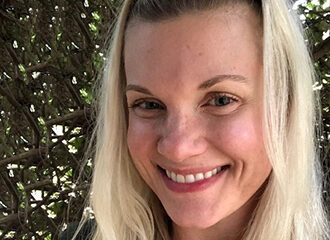The BIPOC (Black, Indigenous, and Person of Color) Community has long been underserved when it comes to mental health, and especially eating disorders. There are many reasons for this—lack of resources and education in communities, underrepresentation in eating disorder research and in the development of diagnostic tools, language barriers, biased providers, and cultural attitudes that discourage seeking professional help are just a few of them. But this does not mean that BIPOC individuals are any less deserving of care and recovery.
Because of the historic inequities they’ve faced, the BIPOC community understands the importance of creating spaces that promote safety and healing. The discrimination they’re confronted with causes harm and often ignites feelings of being “less than” others. It carries with it the message that only certain people “matter,” and it often shuts down individuals’ ability to speak up for themselves. This is why care that takes into consideration the unique social, cultural, and even dietary needs of BIPOC individuals is essential.
What are virtual support groups and how do they work?

What do you talk about in virtual BIPOC patient support groups?
In virtual BIPOC patient eating disorder support groups, discussions revolve around various topics related to eating disorders, recovery, and the specific experiences of BIPOC individuals. Here are some common themes that may be addressed during these support group sessions:
- Intersectionality: The intersection of race, culture, and identity with eating disorders is often a key topic of discussion. Participants may share how their racial or ethnic background has influenced their body image and their relationship with food. Group is also a space to explore how the experience of occupying multiple marginalized identities impact eating disorder recovery, mental health, and physical wellbeing.
- Cultural Factors: Support groups provide a space to discuss the cultural factors that contribute to the development and maintenance of eating disorders or serve as protective factors within the BIPOC community. Discussions may focus on cultural ideals of beauty, body shape expectations, cultural food practices, and the impact of intergenerational trauma or cultural norms on body image and self-esteem.
- Healing from Racial Trauma: Participants may discuss their experiences of racial trauma and its impact on their mental health, self-worth, and relationship with food. Sharing coping strategies, discussing the effects of systemic racism, and exploring ways to heal from racial trauma can be important components of these support groups.
- Navigating Healthcare Systems: BIPOC individuals may face unique challenges when seeking treatment and support for eating disorders due to systemic barriers or lack of cultural competence within healthcare systems. Discussions may focus on strategies for advocating for oneself, finding culturally sensitive treatment providers, and addressing disparities in accessing care.
- Family and Community Dynamics: Exploring the role of family and community in the development and recovery from eating disorders is another important topic. Participants may discuss cultural expectations, family dynamics, and the impact of community support or lack thereof on their recovery journey.
- Coping Strategies and Self-Care: Sharing coping strategies, self-care techniques, and resilience-building practices specific to the experiences of BIPOC individuals can be a valuable part of these support groups. Participants can exchange ideas, resources, and self-care techniques that align with their cultural backgrounds and promote overall well-being.
- Celebrating Resilience and Successes: Support groups provide an opportunity to celebrate individual and collective successes, no matter how small. Participants can share their milestones, victories, and positive steps taken in their recovery journey, inspiring and supporting one another.
What additional resources exist to help BIPOC individuals?
Organizations such as The Loveland Foundation, Therapy For Black Girls, and Black Emotional and Mental Health (BEAM) are great places for Black individuals to find resources such as therapist directories, podcasts, trainings, and grants.
The Indian Health Service can help connect Indigenous individuals with resources in their communities.
For Muslim American individuals, the Institute of Muslim Mental Health has resources and mentorship programs.
Melanin & Mental Health and The Steve Fund are organizations dedicated to supporting the mental health and emotional well-being of people of color.
How Places Like Renfrew Can Help
The Renfrew Center’s BIPOC weekly support group addresses the emotional and physical impacts of the current cultural climate on recovery and is ideal for BIPOC individuals with disordered eating patterns, or those questioning if they have an eating disorder and looking for additional support. In this group, we work to build trust, allowing BIPOC individuals to “show up” as their full selves while processing and discussing emotional responses surrounding race relations, complex racial issues, and discrimination.
Group members have opportunities to identify, share, and affirm connections to themselves and others, building authentic and sustainable relationships. They share their experiences and address anxiety, trauma or other related emotions that may have been recently reactivated. They also discuss access to care concerns and work with practitioners to find resources that fit their specific needs. Participants receive valuable takeaway tools to support themselves during their recovery, and after leaving treatment.
Discussion includes the following topics and their impacts on eating disorder recovery:
- Lived Experiences
- Marginalization
- Microaggressions
- Prejudices
- Racism & Racial Inequality
- Racial and Intergenerational Trauma
- Intersectionality
- Food & Nutrition
In addition to virtual help, BIPOC individuals may find it helpful to connect with others offline. This doesn’t just have to be in the form of in-person treatment, but also identifying and engaging with a network of supportive people. Family and friends can also benefit from the resources found online.
Final Thoughts: What should you do next?
After receiving support from a virtual eating disorder help group, there are several important next steps that someone in the BIPOC community can consider:
- Schedule an Assessment; if you’re wondering if you are struggling with an eating disorder, consider scheduling an assessment or chat online with one of our Program Information Specialists
- Connect with Culturally Competent Providers
- Build a Support Network
- Seek out BIPOC authors, educators, and content creators in the eating disorder space
- Advocate for Change
Remember that recovery from an eating disorder is a journey, and it is important to be patient and kind to yourself throughout the process. By taking these next steps and continuing to prioritize your well-being, you are on a path towards healing and fostering a healthier relationship with food, body, and self.



